第94章 XVII(1)
The Flight of Two Owls
SUMMER as it was, the east wind set poor Hepzibah's few remaining teeth chattering in her head, as she and Clifford faced it, on their way up Pyncheon Street, and towards the centre of the town. Not merely was it the shiver which this pitiless blast brought to her frame (although her feet and hands, especially, had never seemed so death-a-cold as now), but there was a moral sensation, mingling itself with the physical chill, and causing her to shake more in spirit than in body. The world's broad, bleak atmosphere was all so comfortless! Such, indeed, is the impression which it makes on every new adventurer, even if he plunge into it while the warmest tide of life is bubbling through his veins. What, then, must it have been to Hepzibah and Clifford,--so time-stricken as they were, yet so like children in their inexperience,--as they left the doorstep, and passed from beneath the wide shelter of the Pyncheon Elm! They were wandering all abroad, on precisely such a pilgrimage as a child often meditates, to the world's end, with perhaps a sixpence and a biscuit in his pocket. In Hepzibah's mind, there was the wretched consciousness of being adrift. She had lost the faculty of self-guidance; but, in view of the difficulties around her, felt it hardly worth an effort to regain it, and was, moreover, incapable of making one.
As they proceeded on their strange expedition, she now and then cast a look sidelong at Clifford, and could not but observe that he was possessed and swayed by a powerful excitement. It was this, indeed, that gave him the control which he had at once, and so irresistibly, established over his movements. It not a little resembled the exhilaration of wine. Or, it might more fancifully be compared to a joyous piece of music, played with wild vivacity, but upon a disordered instrument. As the cracked jarring note might always be heard, and as it jarred loudest amidst the loftiest exultation of the melody, so was there a continual quake through Clifford, causing him most to quiver while he wore a triumphant smile, and seemed almost under a necessity to skip in his gait.
They met few people abroad, even on passing from the retired neighborhood of the House of the Seven Gables into what was ordinarily the more thronged and busier portion of the town.
Glistening sidewalks, with little pools of rain, here and there, along their unequal surface; umbrellas displayed ostentatiously in the shop-windows, as if the life of trade had concentrated itself in that one article; wet leaves of the, horse-chestnut or elm-trees, torn off untimely by the blast and scattered along the public way;an unsightly, accumulation of mud in the middle of the street, which perversely grew the more unclean for its long and laborious washing,--these were the more definable points of a very sombre picture. In the way of movement and human life, there was the hasty rattle of a cab or coach, its driver protected by a waterproof cap over his head and shoulders; the forlorn figure of an old man, who seemed to have crept out of some subterranean sewer, and was stooping along the kennel, and poking the wet rubbish with a stick, in quest of rusty nails; a merchant or two, at the door of the post-office, together with an editor and a miscellaneous politician, awaiting a dilatory mail; a few visages of retired sea-captains at the window of an insurance office, looking out vacantly at the vacant street, blaspheming at the weather, and fretting at the dearth as well of public news as local gossip. What a treasure-trove to these venerable quidnuncs, could they have guessed the secret which Hepzibah and Clifford were carrying along with them! But their two figures attracted hardly so much notice as that of a young girl, who passed at the same instant, and happened to raise her skirt a trifle too high above her ankles. Had it been a sunny and cheerful day, they could hardly have gone through the streets without making themselves obnoxious to remark. Now, probably, they were felt to be in keeping with the dismal and bitter weather, and therefore did not stand out in strong relief, as if the sun were shining on them, but melted into the gray gloom and were forgotten as soon as gone.
Poor Hepzibah! Could she have understood this fact, it would have brought her some little comfort; for, to all her other troubles, --strange to say!--there was added the womanish and old-maiden-like misery arising from a sense of unseemliness in her attire. Thus, she was fain to shrink deeper into herself, as it were, as if in the hope of making people suppose that here was only a cloak and hood, threadbare and woefully faded, taking an airing in the midst of the storm, without any wearer!